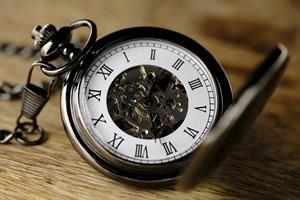
PUMPA - SMART LEARNING
எங்கள் ஆசிரியர்களுடன் 1-ஆன்-1 ஆலோசனை நேரத்தைப் பெறுங்கள். டாப்பர் ஆவதற்கு நாங்கள் பயிற்சி அளிப்போம்
Book Free DemoStudy the information about the past tenses. Remember them.

Tense | Affirmative/negative/ question | Use | Signal words |
Past simple | Form: [verb+ed] or irregular verbs A: He spoke N: He did not speak. Q: Did he speak? | • Actions in the past taking place once, never or several times. • Action taking place one after another. • Action taking place in the middle of another action. | Yesterday, 2 minutes ago, in 1990, the other day, last Friday, 'if-sentences' type II. |
Past continuous | Form: [was/were + present participle] A: He was speaking. N: He was not speaking. Q: Was he speaking? | • Action going on at a certain time in the past. • Actions taking place at the same time. • Action in the past that is interrupted by another action. | When, while, as long as, from____to____yesterday, the whole evening |
Past perfect | Form: [had + past participle] A: He had spoken. N: He had not spoken. Q: Had he spoken? | • Action taking place before a certain time in the past. • Sometimes interchangeable with the past perfect progressive. • Putting emphasis only on the fact (not the duration). | Already, just, never, not yet, once, until that day, 'if-sentences' type III, by the time |
Past perfect continuous | Form: [had + been + present participle] A: He had been speaking. N: He had not been speaking. Q: Had he been speaking? | • Action taking place before a certain time in the past. • Sometimes interchangeable with the past perfect. • Putting emphasis on the duration or course of an action. | For, since, the whole day, all day, for 20 minutes, for 3 hours. |
There was a wonderful film on TV yesterday. (the past simple)
We were discussing many things from 5 to 6 yesterday. (the past continuous)
I had read this book by 4 pm yesterday. (the past perfect)
We were tired. We had been running for 2 hours. (the past perfect continuous)
Reference:
Attēls: https://pixabay.com/images/id-3179167/ Pixabay License CC0